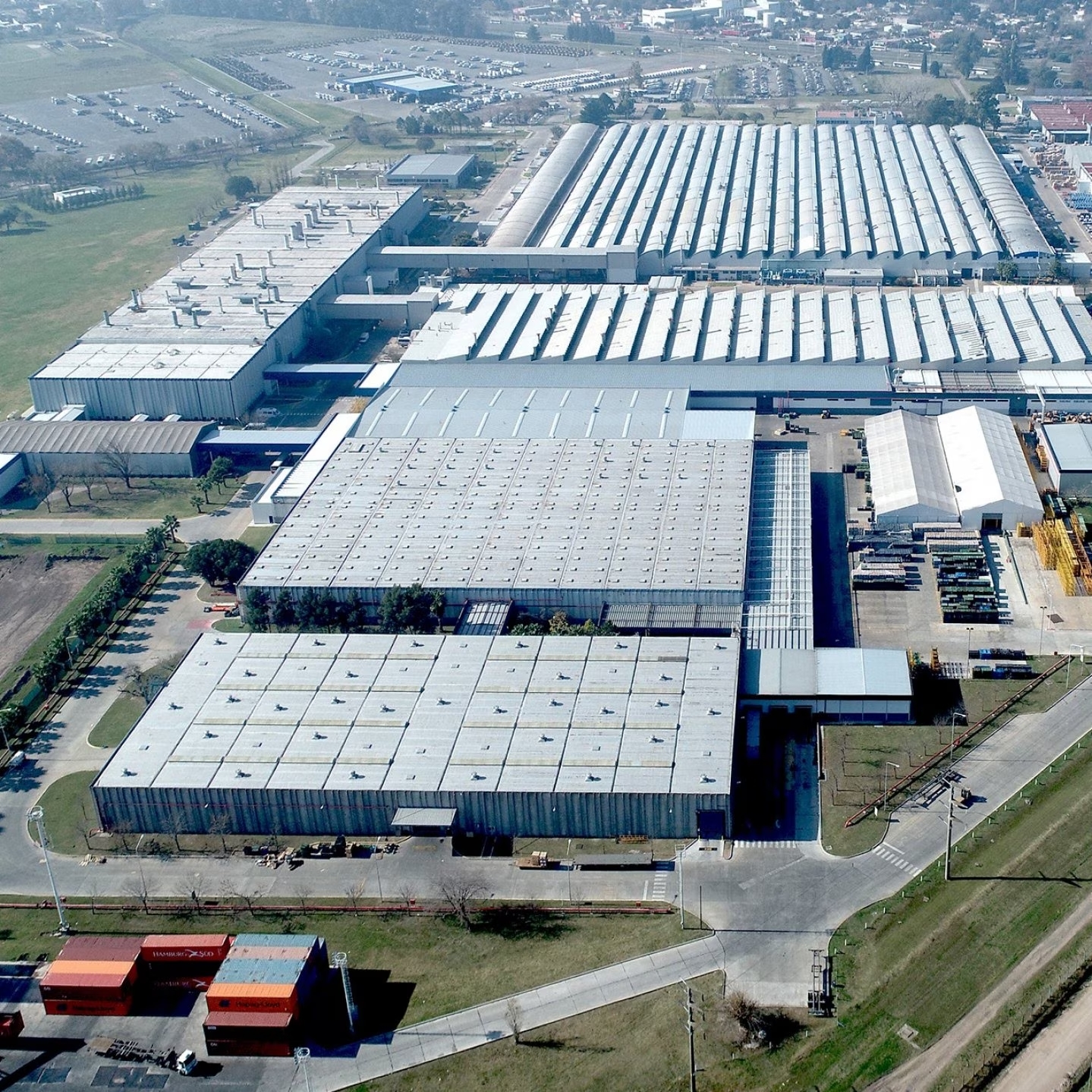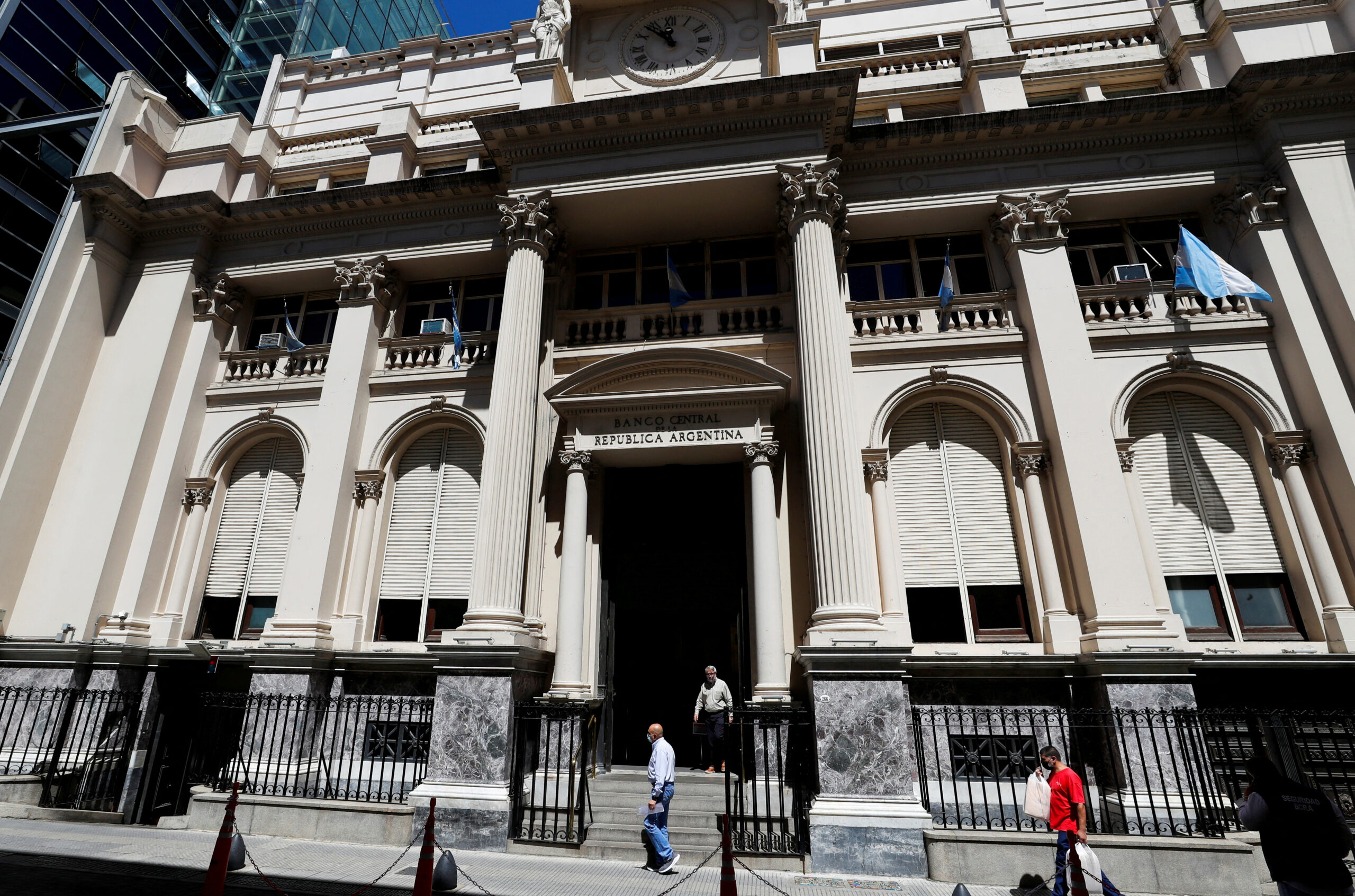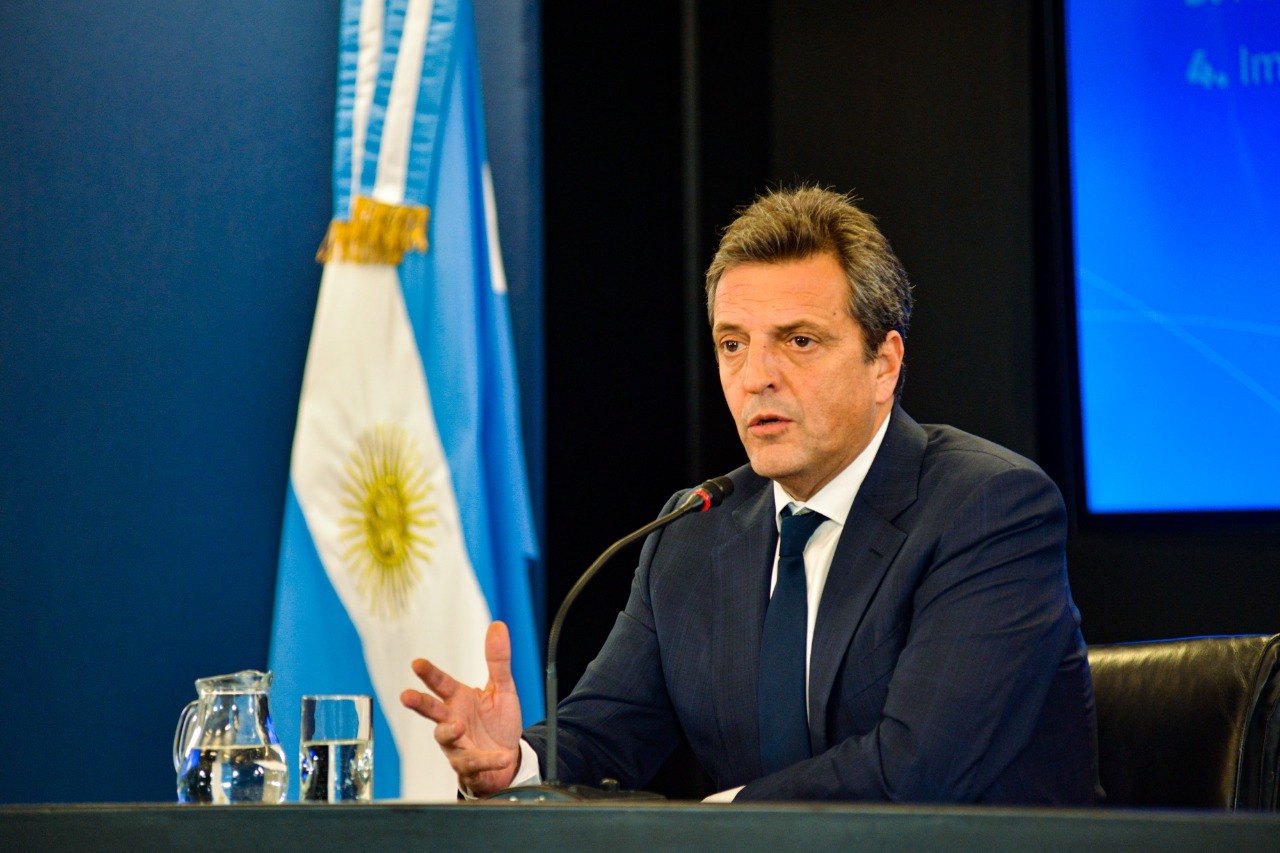Customs to fine P&G at least US$ 68 million for overcharging imports
Argentine Customs sanctioned multinational consumer goods corporation Procter & Gamble (P&G) this week for allegedly overstating imports worth US$68 million from 2019 to 2022. As a result, Customs is seeking to fine the corporation US$ 68 million through its administrative judge, aiming to make it pay for the difference in the import duties it originally paid to match the actual prices. P&G has now ten working days to accept or reject the fine. When the administrative case is finished, the judge can establish the fine, which could range from the US$ 68 million Customs calculated to five times that amount. Customs said the judge will take into account the corporation’s record to decide the final amount.
Source:Bueno Aires Herald
April 29, 2023 02:21 UTC
German companies confirmed investments in Argentina
German companies have confirmed to Secretary of Industry and Productive Development, José Ignacio de Mendiguren, that they will continue investing in Argentina during the Secretary’s trip to Germany. In Stuttgart, de Mendiguren met with authorities from the automotive company Mercedes-Benz, who confirmed their investments in Argentina, as well as initiatives to increase exports. The Germany tour is a continuation of German chancellor Olaf Scholz’s visit to Argentina in January, Industry Secretariat sources said in a statement. In Ludwigshafen, Mendiguren visited the facilities of BASF, which specializes in organic chemistry and has been present in Argentina for more than 70 years. He stressed that Argentina is an important player in the current context of the company’s activities, and confirmed that BASF is planning investments for 2023.
Source:Bueno Aires Herald
April 29, 2023 01:33 UTC
Herald favorites: The Buenos Aires International Book Fair
A classic in the Buenos Aires cultural calendar, the 47th edition of the Buenos Aires International Book Fair begins today at the La Rural, the Rural Society’s huge event venue in the Palermo neighborhood. Organized by non-profit foundation El Libro, the fair features conferences, book presentations and signings, and many other activities. The opening speeches of the Buenos Aires Book Fair have brought memorable and often controversial moments. Jorge Luis Borges’ first poetry book Fervor de Buenos Aires will also be the object of a special homage because this year is the 100th anniversary of its publication. This year, far-right libertarian candidate Javier Milei will present a book entitled El fin de la inflación (‘The end of inflation’).
Source:Bueno Aires Herald
April 28, 2023 09:02 UTC
At any rate: Central Bank raises effective interest to 141%
After a run against the peso and a yearly inflation that well surpassed 100%, the Central Bank’s board raised the benchmark interest rate by 1000 basis points today. The measure means that the yearly nominal rate for 28-day Liquidity Bills —the rate the Central Bank lends money to financial entities— is now 91%, whereas the effective interest rate is 141%. By raising the interest rate, the Central Bank is attempting to make investments in Argentine pesos more attractive and discourage buying dollars. For the rest of the private sector’s fixed-term deposits, the minimum nominal interest rate is 85.5%, meaning that the effective rate is 128.5%. The last time the Central Bank had raised interest rates was last week, when it did so by 300 basis points, from a yearly 78% nominal rate to 81%.
Source:Bueno Aires Herald
April 28, 2023 02:45 UTC
Massa to call businessmen and unions to 90-day stability plan
Economy Minister Sergio Massa has announced he will convene businesspeople and union leaders to draw up a “stability plan” for the next 90 days, during a meeting with members of social organizations and unions. The objective is a price and salary agreement that provides some certainty in a context of annual inflation above 100%. According to a spokesperson in the Economy Ministry, “from Saturday, the Minister will call businessmen, trade unionists and social movements to work together on the basis of the economic order”. Regarding this week’s run on the peso, which led to the informal dollar peaking at just below AR$500, Massa said some people tried to “cheat” over “rumors” and generated uncertainty. Héctor Daer, the General Confederation of Labor’s (CGT) joint secretary general, said the CGT would help the government with “support and trust,” and that they wouldn’t join the “speculators in the financial market that harm everyone’s economy”.
Source:Bueno Aires Herald
April 27, 2023 13:23 UTC
Argentina to start using yuan to pay for imports
Economy Minister Sergio Massa announced the start of foreign exchange operations in yuan for importing companies in order to relieve Argentina’s ailing international reserves. According to Massa, the Central Bank is set to save US$1 billion in April and US$790 million as of May. “This will stop weighing on the outflow of our dollars and transfer to the outflow of yuan,” said Massa during the announcement at the Economy Ministry. “It gives us greater freedom and gives the Central Bank greater operational capacity. “We can’t guarantee the flow of imports, there are doubts as to whether what is en route to Argentina will be able to be accessed.
Source:Bueno Aires Herald
April 26, 2023 23:21 UTC
Bond auction: government gets AR$1 trillion
The Economy Ministry secured AR$1.15 trillion in its bond auction today in the second and last round of April, where it faced maturities of AR$965.79 billion. It was the biggest bond auction this year. The “menu” consisted of seven bonds with only one new financial instrument (TDA24), a dual bond that matures on April 30, 2024. The auction finished one day after the informal dollar reached a record-breaking AR$497 and the currency exchange gap (brecha) exceeded 120%. The next bond auction is scheduled for May 17.
Source:Bueno Aires Herald
April 26, 2023 22:46 UTC
Argentina's IMF deal falls through: negotiations ongoing
Official sources in the Argentine government have told the Herald that they consider the country’s deal with the IMF has fallen through. A spokesperson for the IMF also alluded to ongoing renegotiations with the government. The deal includes an economic program that Argentina must comply with in order to receive disbursements every three months, which are then used to pay for the previous debt with the IMF. The government missed the first-quarter fiscal deficit target agreed with the IMF by 56% and an economy ministry taskforce was set to travel to Washington D.C. later this week to meet IMF authorities in order to continue negotiations over the redefinition of the agreement. Earlier in April, IMF head Kristalina Georgieva explicitly acknowledged the severity of the drought’s impact on Argentina’s economy.
Source:Bueno Aires Herald
April 26, 2023 10:56 UTC
Informal dollar reaches AR$497, Fernández and Massa blame “rumors”
In a rough session for local finance, the informal dollar has jumped by 7% during the day, and the currency exchange gap (brecha) exceeded 120%. The informal dollar exchange rate, known as the blue dollar, peaked at AR$497 before receding slightly following statements from Economy Minister Sergio Massa. The exchange gap is the difference between the official dollar exchange rate and the financial or informal (blue) dollars. “It’s not news, they’ve always done this,” said Fernández, who later wrote a Twitter thread to reflect his statements. — Alberto Fernández (@alferdez) April 25, 2023Massa published a thread about the rise of the informal dollar, saying that “an atypical situation involving rumors, versions, fake reports” had “an impact on financial instruments related to the US dollar”.
Source:Bueno Aires Herald
April 25, 2023 22:54 UTC
Government negotiating lithium export deal with US
The government is moving forward with a bilateral agreement with the United States on Argentine lithium. It states that US$400 billion will be invested in the energy transition, as a result of which demand for lithium is expected to increase fourfold. There are currently two projects in production in Argentina that are under expansion, and another six under construction. Regarding production, it states that the U.S. lithium carbonate supply comes only from a mine in Nevada, so they needed to import it. In 2022, the destinations of Argentine lithium exports were China (42%), Japan (31%), and South Korea (13%).
Source:Bueno Aires Herald
April 25, 2023 17:24 UTC
‘Argentina, 1985’ scores five Platino Awards
Argentina, 1985, Santiago Mitre’s film about the prosecution team behind the landmark Trial of the Juntas, was the big winner on Saturday night at the Platino Awards, where it won five of the 14 categories it was nominated for, including Best Ibero-American Fiction Film. Mitre’s Oscar-nominated film also won Best Screenplay (Santiago Mitre and Mariano Llinás), Best Actor (Ricardo Darín), Best Art Direction (Micalea Saiegh), and the Platino Award for Film and Education in Values, which was received by producer Axel Kuschevatzky. Actor Alejandro Awada won Best Supporting Actor in a Miniseries or Teleseries for his role in Amazon’s Iosi, the repentant spy. Another Spanish film, Cinco lobitos, won the Best Actress and Best Supporting Actress awards for Laia Costa and Susi Sánchez, respectively. The actresses had previously shared the Spanish Goya award for Best Actress for the same film.
Source:Bueno Aires Herald
April 25, 2023 04:00 UTC
Govt to discuss IMF deal modification in D.C. meeting this week
The group will be led by Economy Minister Sergio Massa’s chief advisor Leonardo Madcur and Vice Minister Gabriel Rubinstein. In 2022, the government and the IMF signed an Extended Fund Facility agreement after renegotiating the US$44 billion debt former President Mauricio Macri acquired in 2018. The deal included an economic program that Argentina must comply with in order to receive disbursements every three months, which are used to pay for the previous debt with the IMF. The goals established in the 2022 agreement include international reserve targets, which the Executive Board of the IMF relaxed by US$1.8 billion at the beginning of April. Sources have also said that Massa expects to receive payments from other multilateral organisms in the upcoming months, in order to increase the Central Bank reserves.
Source:Bueno Aires Herald
April 25, 2023 01:59 UTC
Argentina seeks BRICS entry with China and Brazil meetings
In a bid to accelerate Argentina’s entry into the New BRICS Bank (NBD), Argentine Ambassador to China Sabino Vaca Narvaja met on Friday with its current director, former Brazilian president Dilma Rousseff, as well as the new Chinese Foreign Minister, Qin Gang. The acronym BRICS refers to the economic alliance between five countries considered to be rising powers: Brazil, Russia, India, China, and South Africa. At the “Chinese Modernization and the World” forum in Shanghai, attended by international businessmen and professors, Vaca Narvaja stressed the importance of the NBD. “As [Brazilian President Luiz Inacio Lula da Silva] said during his recent visit to China, why can’t we trade backed by our currency? Over the past few years, BRICS members have supported Argentina’s entry to the alliance, including explicit backing from the Chinese government.
Source:Bueno Aires Herald
April 23, 2023 21:55 UTC
Pope Francis plans to visit Argentina in 2024
Pope Francis, who has not returned to his home country since he left for the Vatican a decade ago, revealed that he is planning to visit Argentina in 2024. “I always wanted to return,” Francis said in an interview with La Nación, published today. While he has not yet returned to Argentina, he has made multiple trips abroad, including Africa. On March, Pope Francis gave an interview in Infobae where he said that he expected to visit Argentina “after the elections,” but that it depends on many factors: “first, the my will, which is present – secondly, the sociopolitical situation,” he added. The Pope was meant to visit Argentina during a 2017 tour.
Source:Bueno Aires Herald
April 23, 2023 18:07 UTC
Brazil's Lula doesn't want to 'please anyone' over Ukraine stance
Lula has been criticised in the West for suggesting Ukraine and Russia are to blame for the conflict that began when Moscow invaded its neighbour in February 2022. Last week he said the United States and European allies should stop supplying arms to Ukraine saying they were prolonging the war. “If you are not making peace, you are contributing to war,” said Lula. Lula arrived in Portugal on Friday for a five-day visit as he strives to improve foreign ties. Portugal’s President Marcelo Rebelo de Sousa, who accompanied Lula at the news conference, said their countries’ stance on the war were different.
Source:Bueno Aires Herald
April 23, 2023 06:09 UTC


















